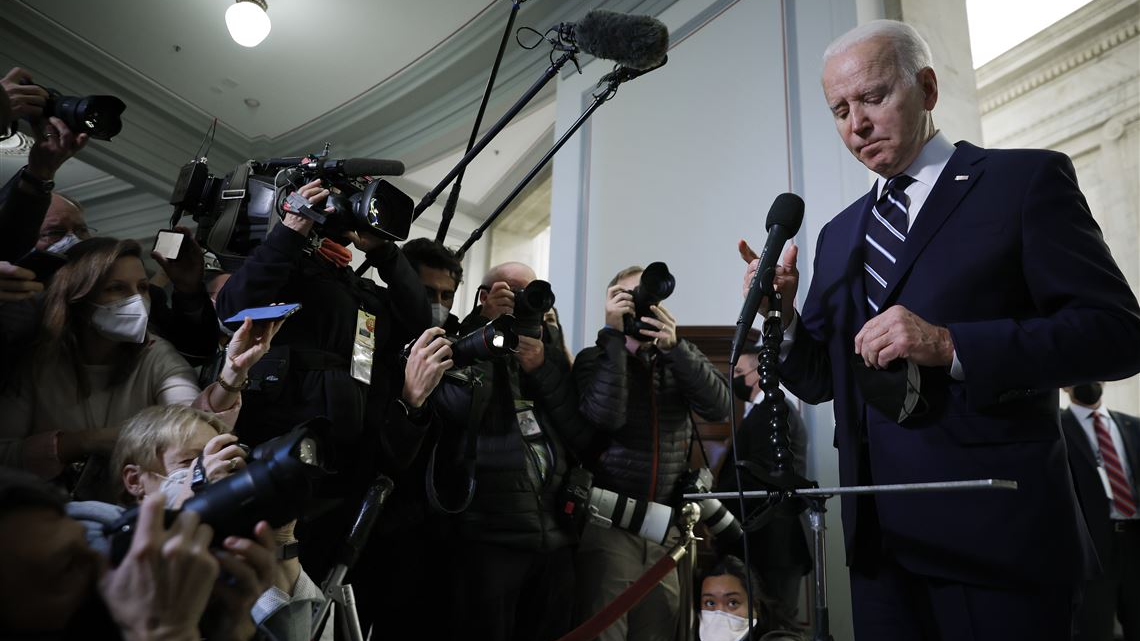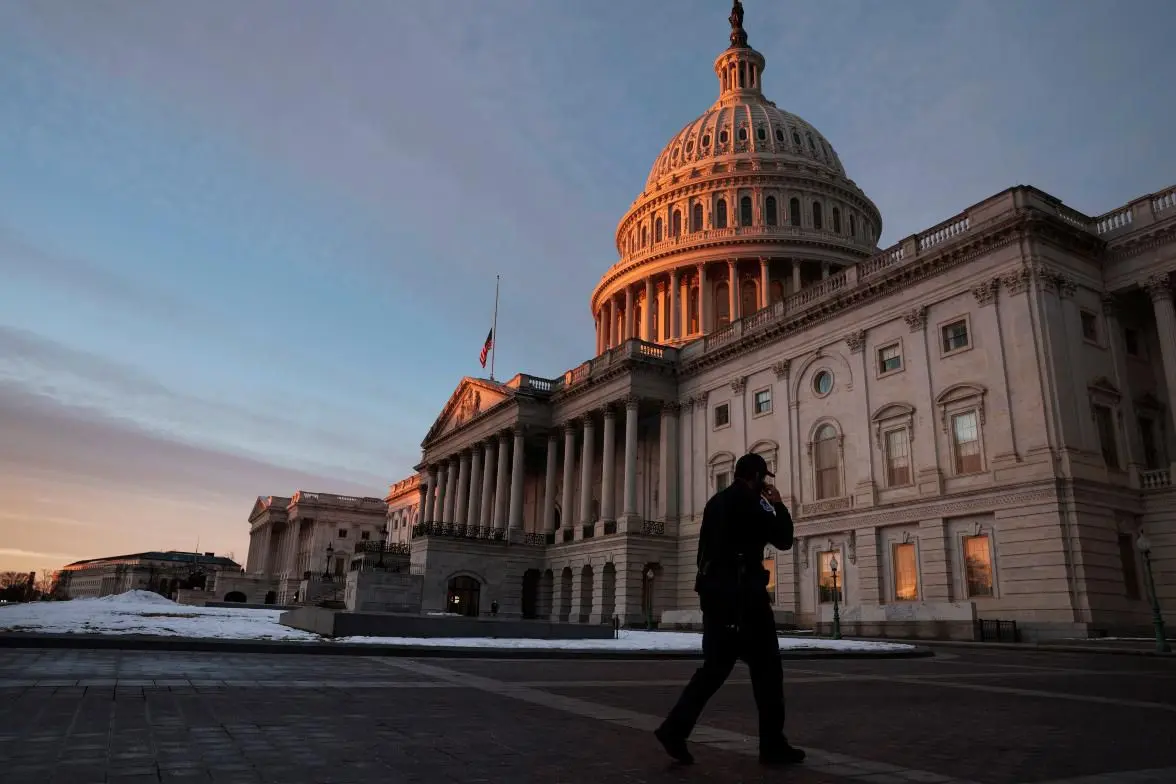
U.S. President Joe Biden talks to reporters in the Russell Senate Office Building on Capitol Hill in Washington, D.C., January 13, 2022. /Getty
U.S. President Joe Biden talks to reporters in the Russell Senate Office Building on Capitol Hill in Washington, D.C., January 13, 2022. /Getty
Editor's note: Thomas O. Falk is a London-based political analyst and commentator. He holds a Master of Arts in international relations from the University of Birmingham and specializes in U.S. affairs. The article reflects the author's opinions and not necessarily the views of CGTN.
On January 20, 2021, Joe Biden took office as a president of reconciliation. He sought to heal the nation, and build bridges for the political opposition. One year later, the trenches of division don't seem any less profound than under Donald Trump. It will likely have severe consequences for Biden's term, especially during the upcoming midterm elections in November.
On the plus side, Biden was able to implement some of his Build Back Better agenda, such as a large package of emergency measures in spring 2021 as well as the colossal infrastructure package in autumn 2021.
On the minus side, there was the abysmal Afghanistan withdrawal and his promise to tackle the pandemic. Now, the omicron wave has the country firmly in its grip. Moreover, there were his promises to heal and reconcile the republic. However, instead of bridging the gap between America's political left and right, Biden even faces issues within his own party.
However, the Democrats have not been alone in making Biden's first year in office incredibly tough. Biden had hoped that the GOP would come to its senses after the Trump years, and that his talent for finding compromises and banking on old friendships would outweigh Trump's influence on voters and thus GOP Congressmen.

The U.S. Capitol Building at sunrise, in Washington, D.C., January 06, 2022. /Getty
The U.S. Capitol Building at sunrise, in Washington, D.C., January 06, 2022. /Getty
Things turned out very differently.
Republicans are trying at all levels to capitalize on their opponents' weaknesses, and persistent comeback rumours about Trump also fuel the euphoria.
Whether it is Jim Jordan, Ted Cruz, Marjorie Taylor Greene or Madison Cawthorn, the Senate and House of Representatives are dominated by Republicans who have little interest in doing traditional opposition work. Instead, the country's division is not only approved but deliberately promoted, knowing full well that the next election is imminent and that their demagoguery has created two perceptual worlds in America that can no longer communicate with each other.
This can particularly be seen via the GOP's efforts to systematically influence public opinion, particularly with the "big lie," the falsehood that Democrats and President Biden stole the 2020 election from Trump, or its stance on vaccination mandates.
Under these false pretences, the GOP has been changing electoral laws on the state level in its favor and re-staffing electoral authorities. The latter was the problem with the 2020 election. Here, Republican election officials resisted attempts by Republicans to interpret the election results in their favor. This time, the Grand Old Party comes prepared; after all, on November 8, 2022, the entire House of Representatives and one-third of the Senate will be re-elected.
Republicans only need to win a handful of seats in the election to gain control of Congress. Early polls indicate that the House and Senate could indeed go to the Republicans.
Biden plays a crucial role. Besides the polls, two indicators usually predict a midterm election and whether or not a party loses seats: the president's approval ratings and the economic data.
Biden's average approval rating during his first year in office is at 48.9 percent. To put this in perspective: among post-World War II presidents, only Trump's approval rating (38.4 percent) was worse than Biden's after year one.
The economic data is not helping either. America faces supply chain problems and record inflation hitting the wallets of millions across the U.S. Most recently, prices have increased by a whopping 6.8 percent - the highest price increase since 1982.
It indeed has not been Biden's year. Yes, he is not Trump. Decorum, decency and diplomacy have returned. However, not being Trump is insufficient given the country's problems. Not being Trump will not reunite the country. Biden needs to be Biden, fulfil his promises, and find a path forward that allows him to show leadership and achieve significant change that will alter the lives of Americans for the better immediately.
If he does not, and the Democrats lose the midterms, Biden's vision will vehemently be blocked for the rest of his term. His presidency would essentially come to an end halfway through, as no pivotal project would receive any support from the current GOP.
Year two of the Biden presidency will thus already make or break the latter.
(If you want to contribute and have specific expertise, please contact us at opinions@cgtn.com.)

